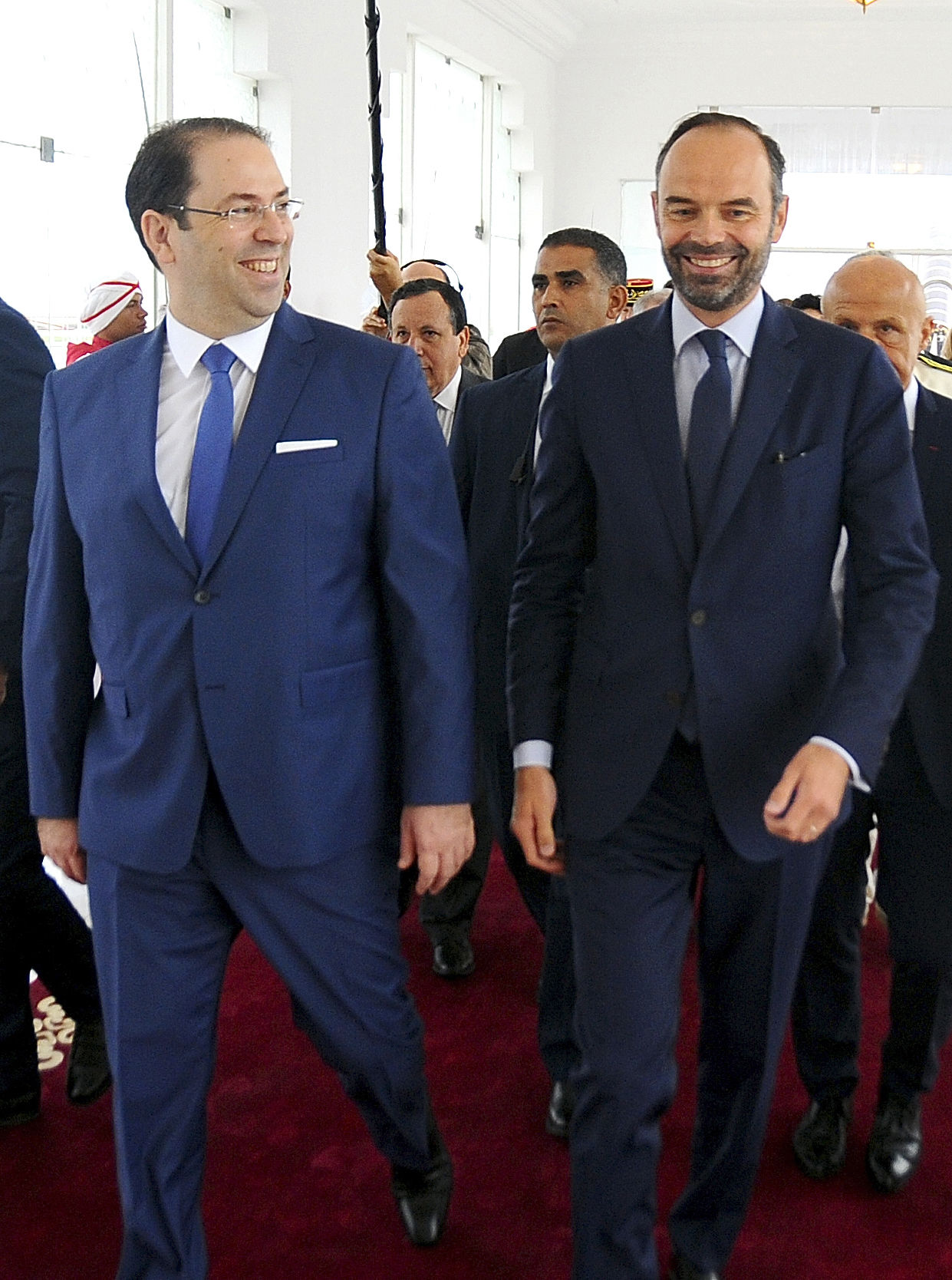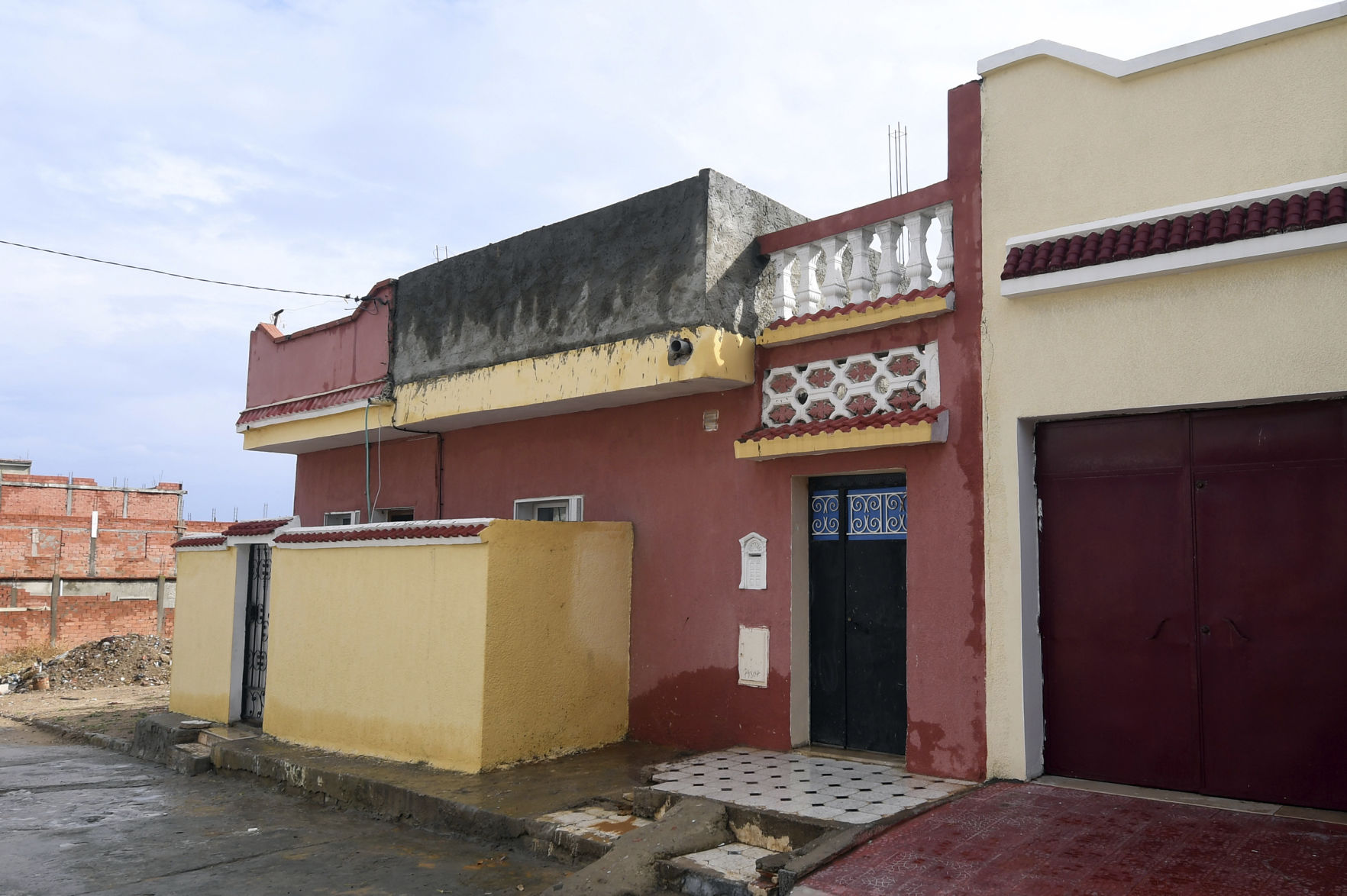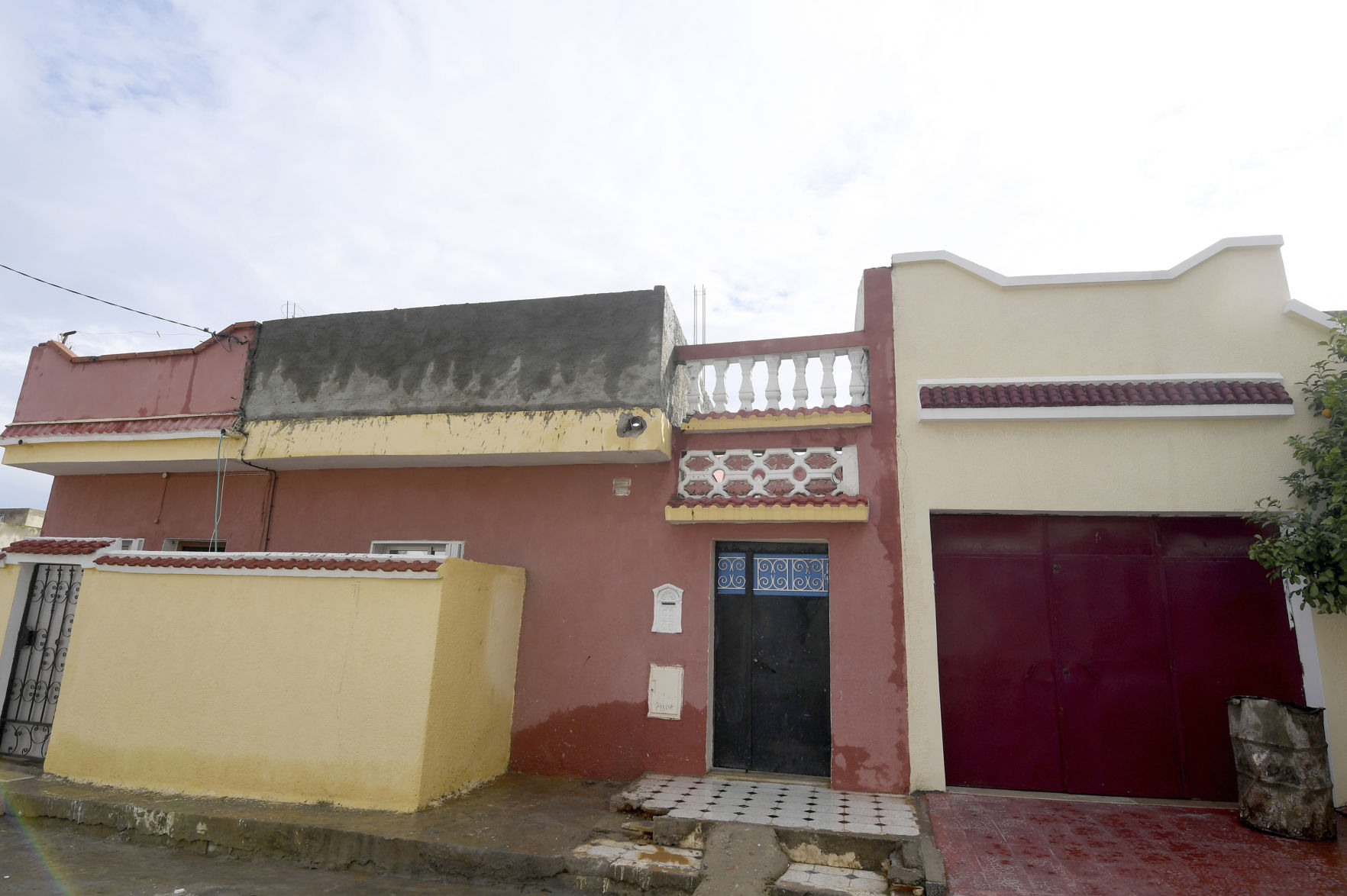TUNIS, Tunisia (AP) — Tunisia’s prime minister said Thursday his government has no evidence that the Tunisian who stabbed two women to death in Marseille had links to any extremist group. Meeting Thursday with his French counterpart in Tunis, Tunisian
TUNIS, Tunisia (AP) — Tunisia’s prime minister said Thursday his government has no evidence that the Tunisian who stabbed two women to death in Marseille had links to any extremist group.
Meeting Thursday with his French counterpart in Tunis, Tunisian Prime Minister Youssef Chahed condemned Sunday’s attack, saying “there is no justification for such barbaric acts.”
French Prime Minister Edouard Philippe said the two countries agreed to work more closely together on security and responding to terror attacks and radicalization. Chahed said they would notably focus on “preventing the risks inherent in the return of terrorists from hot spots.”
French authorities have identified the Marseille attacker as Ahmed Hanachi, a 29-year-old Tunisian. He was killed by soldiers soon after the stabbings at Marseille’s Saint Charles station, which left two young cousins dead after a weekend birthday celebration.
The so-called Islamic State group claimed responsibility, saying he responded to their calls to mete out vengeance for international military operations against the group in Syria and Iraq.
French authorities say Hanachi watched videos of Islamic chants on YouTube but they have not found firm links between Hanachi and IS or signs that he was radicalized. Five people suspected of helping Hanachi have been arrested.
While French authorities describe Hanachi as a mysterious illegal migrant and IS calls him one of its “soldiers,” neighbors in the working class Tunisian neighborhood where Hanachi grew up paint a different picture.
They describe a fisherman with a history of drug problems, abandoned by his wife and with no outward signs of radicalization.
Emotions are raw and anger erupts quickly at Hanachi’s family home in Bizerte, about 60 kilometers north of Tunis. Hanachi’s older brother, Moez, insulted reporters seeking to talk to their parents or find out more about what motivated the attack. Hanachi’s uncle Mohamed started to open up, but then changed his mind.
One longtime friend, who agreed to be publicly identified only as Omar for fear for his security, said Hanachi shuttled regularly between Tunisia and Italy.
“He liked to drink and to take drugs, he didn’t pray,” Omar said.
Omar said Hanachi split with his wife after she had an affair with one of Hanachi’s friends, and his brothers intervened to help him kick his drug habit. After that he resumed regular fishing work and was a “bon vivant” who frequented Bizerte cafes.
When he was in Italy, his Bizerte friends stayed in touch on social networks, where he posted photos of his activities, Omar said.
Omar described the community as “shocked” to learn Hanachi was behind the Marseille attack.
“At first, we questioned his identity and the fact he would be the executor of the operation,” Omar said. “We do not know why (he did it) … I just can’t believe he could really do this.”
Neighbors said two of Hanachi’s brothers followed him to Italy and are believed to still be there, while his third brother remained in Bizerte with their parents.
Rome prosecutors opened a terrorism investigation into Ahmed Hanachi, who had lived in Aprilia, south of Rome, from about 2006 to 2014, Italian news agency ANSA said.
French authorities say Hanachi had seven encounters with French police and used different identities each time. His latest arrest was just two days before the stabbing, when he was picked up for shoplifting and released despite lacking French residency papers.
———
Ben Bouazza reported from Tunis and Bizerte. Angela Charlton in Paris contributed.




